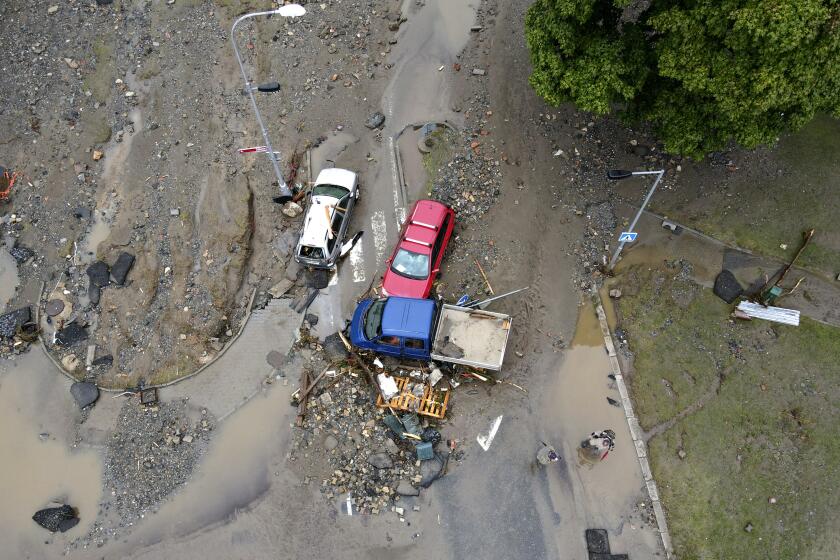A credible threat
FOR THOSE STILL INCLINED to take him at his word, President Bush dismissed on Monday as “wild speculation” reports that his administration has intensified plans for a military attack on Iran. True, the president told an audience at Johns Hopkins University, the United States is determined to prevent the Islamist regime in Tehran from possessing a nuclear weapon. But the administration will do so through diplomacy and in concert with European allies.
Which is all well and good, but for one problem: the credibility gap. In the run-up to the invasion of Iraq, Bush insisted that his primary motivation was the possibility that Saddam Hussein possessed weapons of mass destruction and that the administration saw military action as a last resort. For many Americans, those assurances rang false at the time and still do.
Enter Seymour M. Hersh, the gadfly investigative reporter who suggests in the April 17 issue of the New Yorker magazine that the president’s past policies in Iraq might be prologue to a future attack on Iran, possibly one involving the use of a nuclear weapon. Even more worrisome, Hersh suggests, is that (as with Iraq) the administration might have an ulterior motive that has nothing to do with the specter of mushroom clouds.
“This is much more than a nuclear issue,” Hersh approvingly quotes a “high-ranking diplomat” as saying. “The real issue is who is going to control the Middle East and its oil in the next 10 years.” Hersh also cites a member of Congress who worries that Bush approaches Iran with a “messianic vision.”
There’s more than a whiff of Michael Moore in the notion that, even after the bloodying the United States has taken in Iraq, Bush would disdain a promising settlement with Iran over its nuclear program so that he could go to war to enrich the oil industry or “change the power structure in Iran.” (The quotation comes from another of Hersh’s unnamed sources, “a senior Pentagon advisor on the war on terror.”) Even enthusiasts for the war in Iraq recognize that a U.S. attack on Iran would pose unique dangers, including the creation of a second front in the current conflict with Iraqi insurgents, an escalation in terrorism elsewhere and the transformation of Iranian President Mahmoud Ahmadinejad into a martyr for Islam.
Hersh is undoubtedly right that contingency planners in the Pentagon are gaming possible attacks on Iran. But, in the diplomatic sphere, Bush has adopted a much more nuanced approach to Iran (and that other compass point in the “axis of evil,” North Korea) than he displayed in Iraq. The president on Monday took pains to dispel the suggestion that he thinks Iran is Iraq redux. Not only did he emphasize that his signature doctrine of preemption encompassed diplomacy as well as military force, he also underscored the extent to which the U.S. has yoked itself in its Iran policy to its European allies. The chief diplomat of one of those allies, Jack Straw of Britain, has called the idea of a nuclear attack on Iran “nuts.”
To further close his credibility gap, Bush can do two things. In public, he should continue to make common cause with Washington’s European allies and let them take the lead. Privately, he should engage the Iranians directly, capitalizing on a bilateral channel of communication already announced to discuss the future of Iraq.
In all of their conversations with Iran, the president should feel free to talk tough about the consequences Tehran would invite by pursuing its nuclear program. But he also should make clear that, if Iran is willing to yield on this issue, he has no other agenda, messianic or otherwise.
More to Read
Sign up for Essential California
The most important California stories and recommendations in your inbox every morning.
You may occasionally receive promotional content from the Los Angeles Times.









